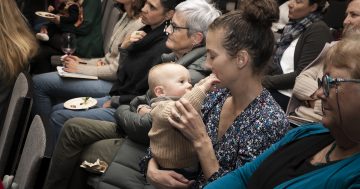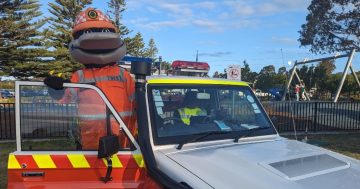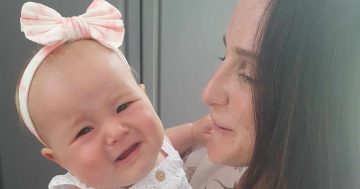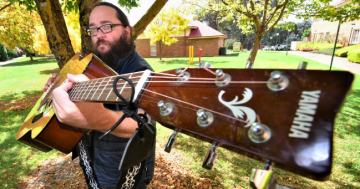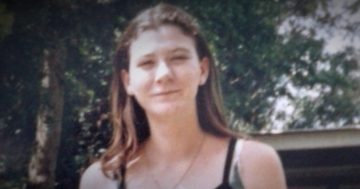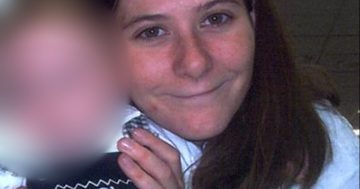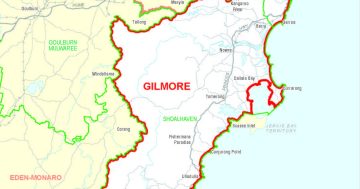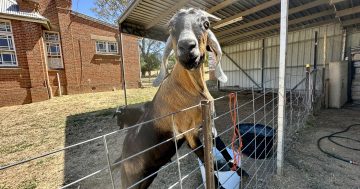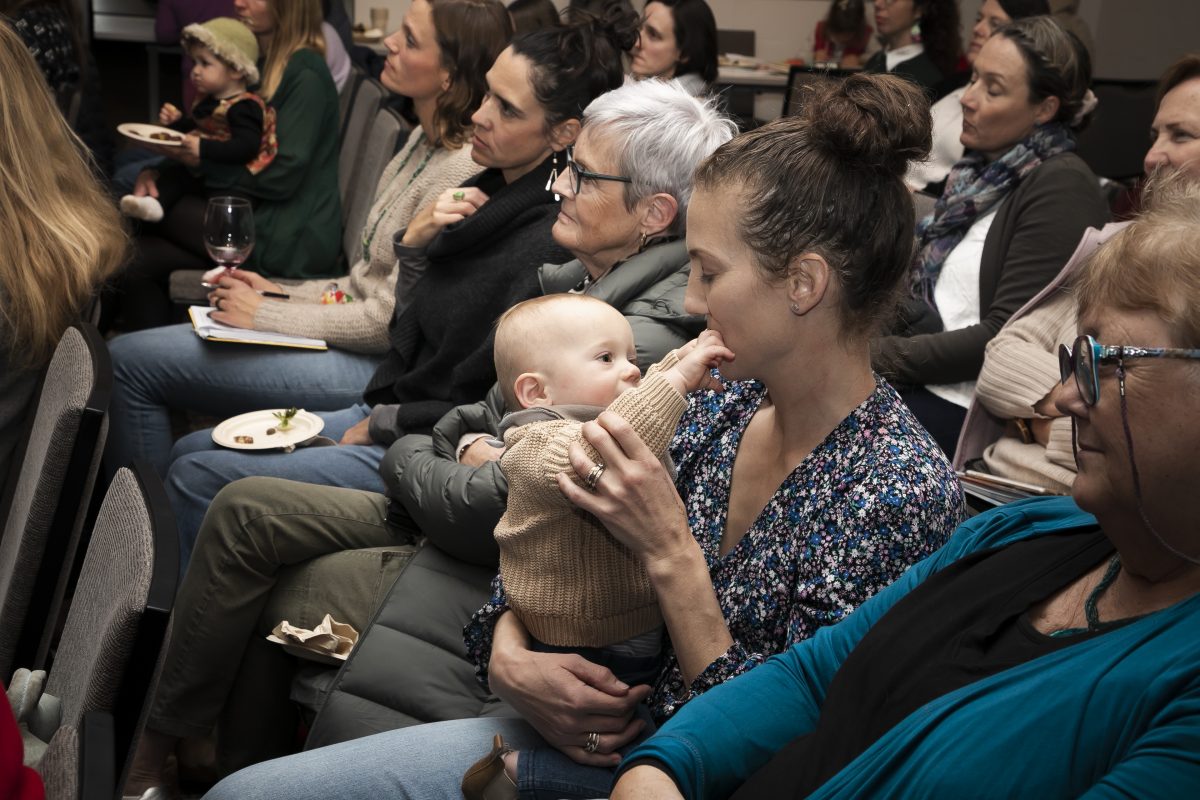
Parents attend the report launch at the Eurobodalla Botanic Gardens. Photo: Australian Breastfeeding Association.
The sky is black with smoke. You’ve been breathing ash for days. Food, water, electricity and communication with the outside world are all unreliable.
You’ve taken your small children to get supplies, and are waiting in line with everyone else. Suddenly, you wake up to ambulance officers standing over you.
This is just one of the hundreds of experiences shared by the women who took part in the Babies and Young Children in the Black Summer (BiBS) study.
“I was so worried about my kids, giving them water, food, everything, that I would just forget to eat and drink myself,” one mum said.
“It was just extremely hot that day, I got really overheated and I literally, I fainted.
“The ambulance people asked me if I had anything to drink that day and I couldn’t even answer the question, I didn’t remember if I had or not.”
More than 200 carers of infants or very young children took part in the study. Two out of the five pregnant women interviewed, fainted while queuing for food and necessities.
It is more difficult for pregnant women to breathe, due to reduced lung capacity.
Parents of babies and small children had to balance the stress of evacuating and caring in the middle of Australia’s most widespread natural disaster.
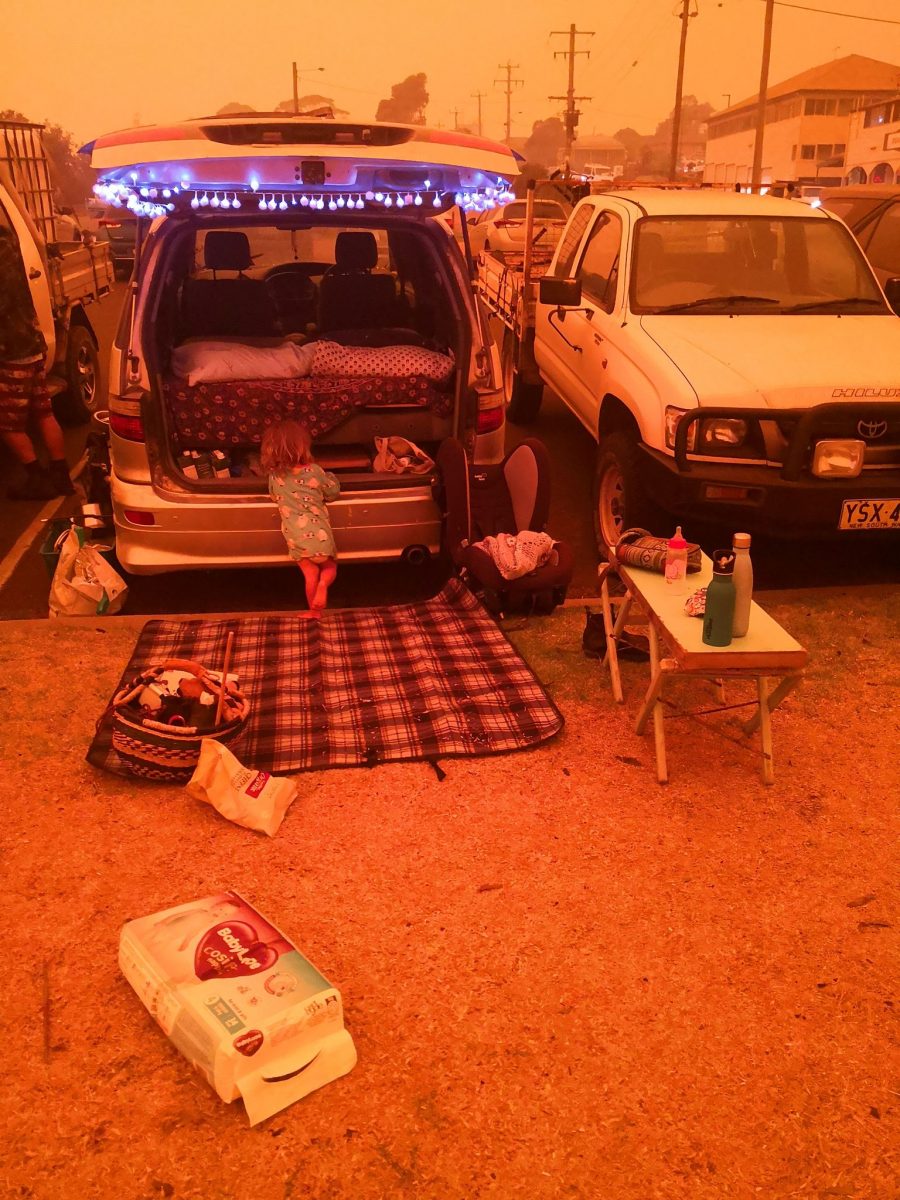
Parents did all they could to keep their kids safe, fed and comfortable during one of Australia’s most widespread natural disasters. Photo: Supplied.
BiBS study authors Dr Karleen Gribble, Dr Michelle Hamrosi and Dr Susan Tawia want to ensure that the needs of babies, young children and pregnant and breastfeeding mums don’t get forgotten in the next climate disaster.
They’re not alone – emergency responders also contributed to the study, and many of them were gravely concerned by the vulnerability of babies, children and mums in evacuation centres.
“In terms of child safety, the showground evacuation centre is full of dark spaces and poorly lit,” one responder said.
“The evacuation centres were chaos, there were pets there, there was such a range of things happening.
“Emergencies can bring out the very best in people, but also the very worst. And when children and families are vulnerable, they can be preyed on by people that do not have good intentions for the children.”
Another emergency responder said they knew of a family who spent their life savings on alternative housing, because they knew they could not keep their children safe in an evacuation centre.
From the hundreds and hundreds of first-person accounts, the BiBS study authors have made 16 recommendations to better support our most vulnerable in disasters.
The recommendations cover preparedness for disaster events, the emergency response, and recovery.
Ways to improve preparedness range from improved policy and planning across government and non-government organisations, involving parents in emergency planning, training emergency responders and health workers in how to support very young children and their caregivers, and developing emergency preparedness information for families with very young children and pregnant women.
During emergencies, creating a dedicated space for caregivers of very young children in evacuation centres, identifying safety hazards and priority registration for caregivers of very young children and pregnant women would go a long way to addressing child safety, as well as maternal and infant health risks.
Post-disaster, creating spaces for mums and other caregivers to support each other and give the kids a chance to play can help with the community connection that is crucial for good mental health.
Information and resources for parents and early childhood educators on how to help very young children process their experiences wouldn’t just help kids, but also give parents the confidence they are doing everything they can to help their young family cope with what happened.
The study, complete with recommendations, was launched this week at the Eurobodalla Botanic Gardens and followed up with an online panel discussion with the authors.
“We really want to implement as many of the recommendations of our study as possible in our shire itself,” Dr Hamrosi said.
“Then we hope to influence planning and policy at a higher level, have round tables with decision-makers in our region, work with them and invite other people to the table who are interested in this, particularly local health services.”






